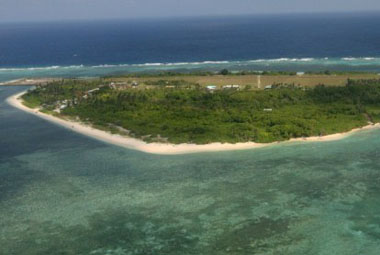Beijing: China warned its rivals Wednesday against turning the South China Sea into a “cradle of war” and threatened an air defence zone there, after its claims to the strategically vital waters were declared invalid.
The surprisingly strong and sweeping ruling by a UN-backed tribunal in The Hague provided powerful diplomatic ammunition to the Philippines, which filed the challenge, and other claimants in their decades-long disputes with China over the resource-rich waters.
China reacted furiously to Tuesday’s decision, insisting on its historical rights over the sea while launching a volley of thinly veiled warnings to the United States and other critical nations.
“Do not turn the South China Sea into a cradle of war,” vice foreign minister Liu Zhenmin told reporters in Beijing, as he described the ruling as waste paper.
“China’s aim is to turn the South China Sea into a sea of peace, friendship and cooperation.”
Liu said China also had “the right” to establish an air defence identification zone (ADIZ) over the sea, which would give the Chinese military authority over foreign aircraft.
A similar zone set up in 2013 in the East China Sea riled Japan, the United States and its allies.
“Whether we need to set up one in the South China Sea depends on the level of threat we receive,” he said.
“We hope other countries will not take the chance to blackmail China.”
The Chinese ambassador to the United States, Cui Tiankai, was even more blunt over the ramifications of the verdict.
 “It will certainly intensify conflicts and even confrontation,” Cui said in Washington on Tuesday.
“It will certainly intensify conflicts and even confrontation,” Cui said in Washington on Tuesday.
China justifies its sovereignty claims by saying it was the first to have discovered, named and exploited the sea, and outlines its claims for most of the waterway using a vague map made up of nine dashes that emerged in the 1940s.
Those claims overlap with those of the Philippines, Vietnam, Malaysia, Brunei and Taiwan.
Manila, under previous president Benigno Aquino, launched the legal case in 2013 after China took control of Scarborough Shoal, a rich fishing ground within the Philippines’ exclusive economic zone and far away from the nearest major Chinese landmass.
China has also in recent years built giant artificial islands capable of hosting military installations and airstrips in the Spratlys archipelago, one of the biggest groups of islands in the sea.
Source From : firstpost.com



